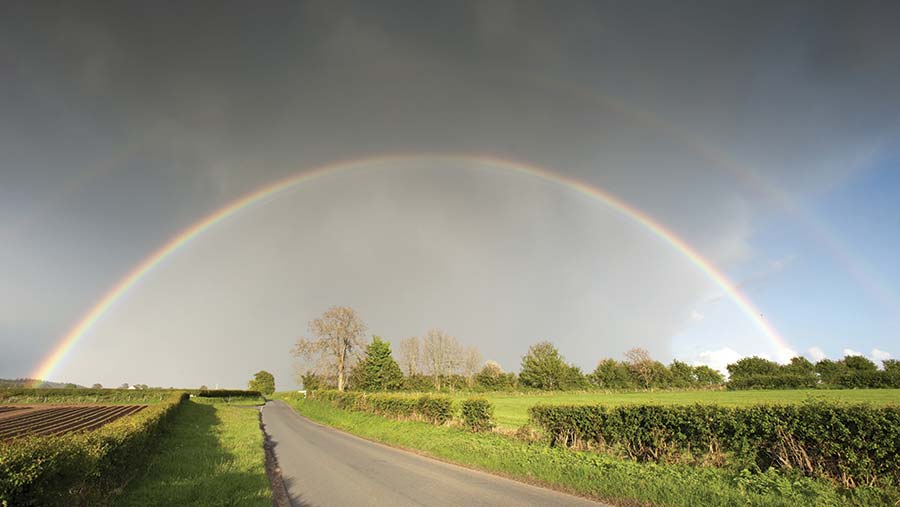Farmers’ biggest concerns for 2016 revealed
 © imageBROKER/REX/Shutterstock
© imageBROKER/REX/Shutterstock Red tape and commodity prices are set to be important issues in 2016 as farmers seek to bounce back from one of the toughest years in living memory.
Growers and livestock farmers are more optimistic about their medium-term prospects – but short-term farmer confidence is at its lowest for two years, according to the findings of an NFU survey published on Wednesday (16 December).
Some 69% of farmers expect rules and regulations to affect their businesses negatively over the next 12 months, reveals the NFU’s sixth annual confidence survey. Poor output prices (56%), CAP reform (51%), and high input prices (46%) will also pile pressure on farms.
NFU president Meurig Raymond said: “Regulation remains the key blocker for our members’ confidence. This gives a clear message that the government must to do all it can to ease regulatory pressure. Confidence is critical because it influences investment and production intentions.”
Biggest concerns for 2016
- Regulation & legislation – 69%
- Output prices – 56%
- CAP – 51%
- Input prices – 46%
- Economy – 45%
- Animal health – 37%
- Labour supply – 26%
- Supply chain – 24%
- Consumption levels for British produce – 21%
- Access to bank lending – 18%
Source: NFU
The NFU’s medium-term confidence index, which measures how optimistic farmers feel about their prospects for the next three years, has risen to +6 from +5 since December 2014. But the short-term index, which looks at the year ahead, has fallen to -6 from -5 over the same period.
“This year has seen British farming face massive challenges, not least of all falling farmgate prices,” said Mr Raymond. “Given the levels of volatility across the industry, it is no surprise we have seen farmer confidence in the negative.”
Arable and dairy have been among the sectors hit hardest by low prices. Wheat prices have fallen to £103/t from £127/t a year ago. Meanwhile, milk prices fell to 24.23p/litre from 29.66p/litre in the 12 months to October 2015, according to official Defra figures.
In what amounts to a Christmas message from the NFU to Defra secretary Liz Truss, Mr Raymond called on the government to honour its pledge to reduce the frequency of farm inspections and improve their co-ordination.
“If we want our farms to compete in an increasingly global market place and make the most of emerging export opportunities, we need government action rather than rhetoric when it comes to reducing red tape,” he said.
The government has promised a farm inspection taskforce will be operational by summer 2016. Defra anticipates the taskforce will reduce the number of farm inspections in England by 20,000 a year to 105,000, saving farmers and taxpayers time and money.
 ‘It’s all about staying in the game’
‘It’s all about staying in the game’
Brett Askew, arable grower, Gateshead, Tyne and Wear
“We have a historically low wheat price due to high stocks round the world, but the input costs don’t bear any relation to the price we are getting for our crop.
“Agrochemicals have not come down in price, fertiliser prices have dropped a little, but nowhere near enough to give us a profit for our produce.
“The cost of production for feed wheat is about £135/t. We are all selling it at about £100-£106/t. That cannot continue for that long. But you cannot even sell it forward at a profit.
“You are relying on a weather issue somewhere in the world and/or barnstorming yields just to stay above water.
“I can understand why people in the confidence survey are not too optimistic. But in farming, you have to be in it for the long game. It’s all about staying in the game.”
 ‘We must keep on top of costs’
‘We must keep on top of costs’
David Cotton, dairy farmer, Glastonbury, Somerset
Dairy farmer David Cotton farms 550 cattle, including 240 pedigree Holstein Friesians and followers, near Glastonbury, Somerset.
He said: “The biggest issue for me in 2016 will be keeping on top of our costs. We are looking at our inputs to make sure we get them at the best price when we buy them.
“We are also looking at cow numbers and whether we go more extensive rather than intensive. We grow grass like a weed here, so at times like this, you have to make the best use of your assets.
“But you still have to look beyond 2016. Over the next five years, we will look at succession and put a new business plan in place.”
